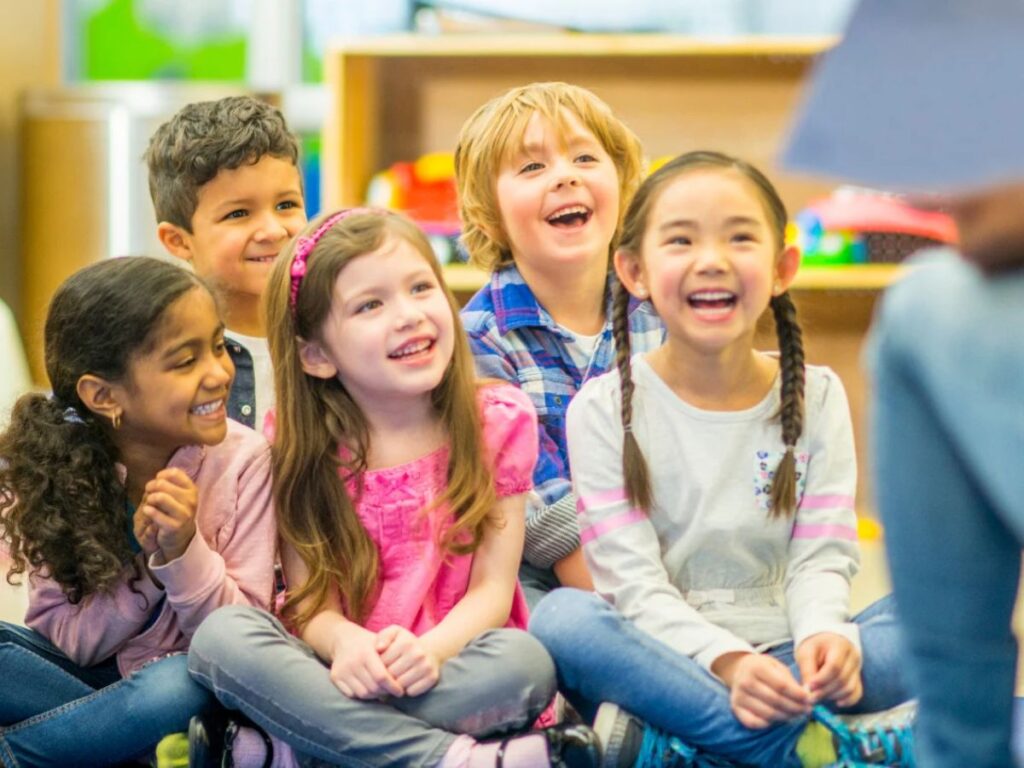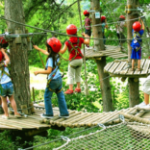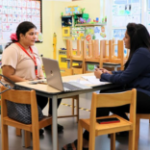
The most important factor in a child’s development is their early childhood. The foundation that can lead to successful academic endeavors, appropriate social interaction, and emotional maturity, all begin through communication. The preschooler needs to develop strong communication skills. Being a good speaker or listener and understanding body language are great benefits through activities that help stimulate his capacity to express himself and his thoughts to others. This blog discusses the role of building communication skills in preschoolers, strategies to nurture these abilities, and practical tips for parents and educators alike.
The Importance of Communication Skills in Preschoolers
Effective communication goes beyond the ability to speak. For young children, communication encompasses listening, understanding, expressing thoughts clearly, and using body language to convey emotions. These foundational skills are critical for a child’s academic and social development. Research shows that children with strong communication skills are better equipped to succeed in school and navigate relationships
Communication skills also contribute to emotional intelligence, enabling children to express their feelings appropriately and understand others’. As preschoolers learn to communicate, they begin to develop critical thinking skills, creativity, and empathy—all traits that are valuable for a lifetime. These skills also lay the groundwork for literacy development. When children begin school, those who can speak often perform better at reading and writing
Encouraging Communication Through Interactive Play
Play is the most effective way of developing communication skills in preschoolers. Children learn best when they are engaged in interactive activities requiring them to listen, speak, and interact with others. Some strategies for encouraging communication through play include the following:
Show and Tell
“Show and Tell” is a tried-and-true activity that helps children share about their personal experiences and objects in front of others. Explaining what the object is, why it’s important, and how it connects to their lives, children practice using descriptive language and forming sentences. This boosts their confidence in speaking and develops listening skills as they interact with their peers.
Pretend Play
Pretend play enables children to explore various roles and scenarios, such as pretending to be a teacher, doctor, or parent. Such activities require children to use their imagination, problem-solving skills, and communication abilities to act out various social interactions. This encourages language development and enhances social-emotional learning as children learn to express needs and understand others’ perspectives.
Interactive Games
Simple games like “Simon Says” or taking turns during board games encourage verbal communication. These games promote listening skills, following instructions, and expressing ideas clearly. Additionally, group activities like building a story together or participating in a class skit allow children to practice both speaking and listening in a fun, dynamic environment.
The Role of Body Language, Eye Contact, and Tone
While verbal communication is of most importance, non-verbal features such as body language and eye contact, tone of voice play a significant role in communication among children. Understanding and practicing these features can enhance the ability of children to interact effectively with people.
Body Language
From a young age, children start to show their emotions and reactions by using body language. Smiling, frowning, crossing arms, or leaning in can all convey messages. Encouraging children to recognize and interpret these physical cues helps them become more aware of how they communicate and how others do too.
Eye Contact
Eye contact is such a powerful tool in communication because it signifies attentiveness and respect. Preschoolers could have difficulties maintaining eye contact but with practice and gentle guidance, children would learn how to use this ability during conversations. Teachers and parents can model proper eye contact so that it is natural and fitting for the situation.
Tone of Voice
A change in tone of voice may transform a message entirely. Kindness may be expressed by soft and warm tones, but a sharp or loud tone can denote frustration. Teaching children to modify the tone of voice according to context will help them better convey their feelings. In a role-playing activity, a child may learn to distinguish between the tones and how they can use them to express emotion.
Practical Tips for Parents to Reinforce Communication Skills at Home
While preschools play an important role in developing communication skills, parents are a child’s first teachers. Here are a few ways parents can reinforce communication at home:
Have Conversations
Discuss the activities of your child all day. Ask open-ended questions like “What did you do today?” or “How did you feel about that?” You want them to use complete sentences. This helps to further develop their ability to arrange their thoughts and expand their vocabulary.
Read Together
Reading aloud to children is one of the most effective ways to develop language skills. Choose books with rich vocabulary and complex ideas. Encourage your child to ask questions about the story or to describe what they see in the pictures. Reading fosters comprehension and builds language skills.
Active Listening
When your child communicates, listen carefully and attentively, responding thoughtfully as well. Make sure that their words are valued by giving them your ear, using positive gestures, and providing meaningful feedback. With active listening, children learn to value their voices and also to become listeners of others.
Clear Communication Model
Children imitate the language they are exposed to, so parents need to model clear and effective communication. Use simple, clear language when speaking to your child and give them time to respond. Avoid interrupting, and encourage turn-taking in conversations.
Balance Screen Time with Interaction
While technology can indeed be educational, it should be balanced with face-to-face interaction. Engage your child in activities that require a lot of verbal communication, such as board games, storytelling, or role-playing, to avoid passive screen time.
Summary:
Effective study habits are fundamental to a child’s academic growth and success. At Tiny Tots English School in Pimpri-Chinchwad, Pune, we prioritize a comprehensive approach that fosters academic excellence, sports skills, personal attention, and overall development. By incorporating practical study tips, students can build strong, sustainable study habits that will support their long-term academic achievements. Consistency, discipline, and a positive attitude are essential to mastering these habits and succeeding in both education and life.




